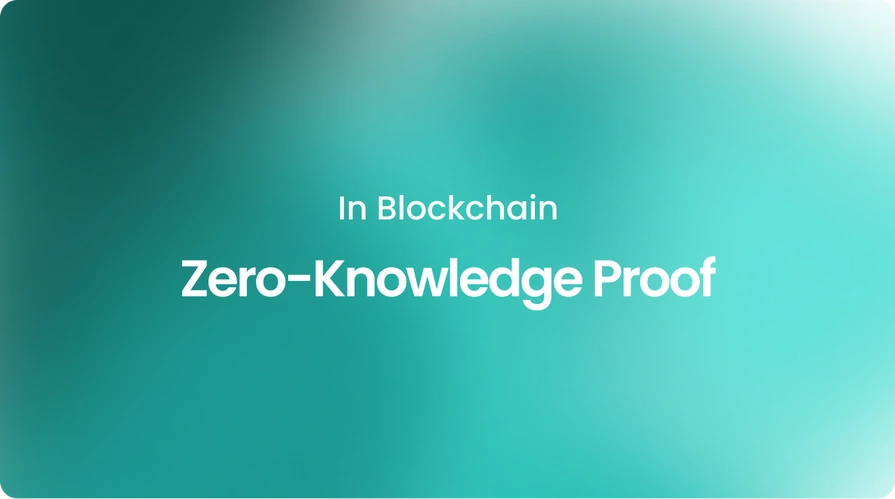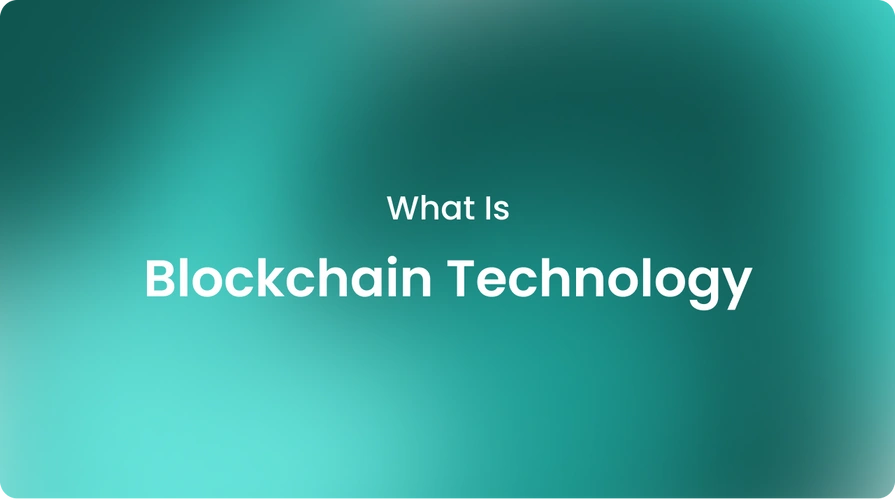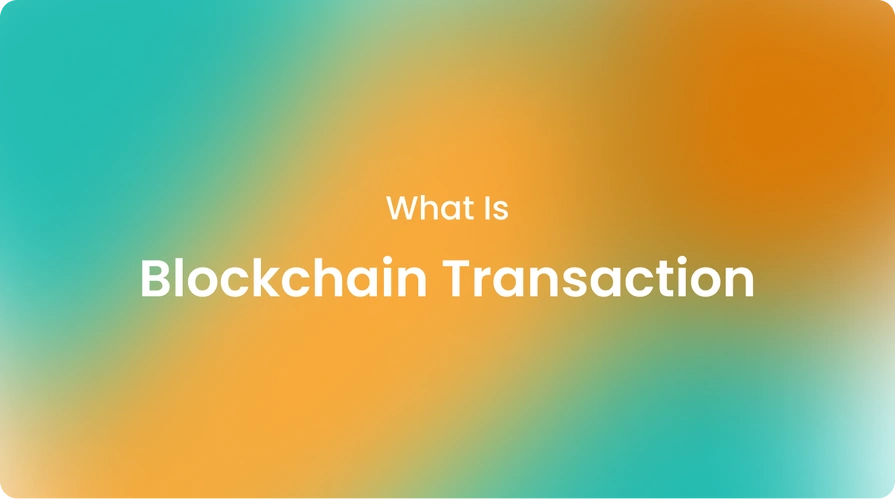|technology, knowledgehub
What Is Zero-Knowledge Proof in Blockchain?

As cryptocurrencies and blockchain technologies continue to transform our digital world, ensuring privacy and security remains a top priority. One emerging concept with enormous potential is zero-knowledge proofs, or ZKPs.
Through clever uses of cryptography, ZKPs allow blockchain networks to verify transactions and interact with users without revealing sensitive personal details. Join us in this blog post as we will explain what zero-knowledge proofs are, how they work, and explore their applications in blockchain today.
What are zero knowledge proofs (ZKPs)?
Zero knowledge proofs get their name because the verifying party, while assured of the proof's validity, learns nothing else. Think of it like an unbreakable locked box: the verifier sees the box is locked without seeing what's inside. ZKPs use mathematical principles and cryptography to convince, not reveal.
ZKPs work by shuffling numbers in clever ways repeatedly until they convince a verifier that a statement is true beyond all doubt, without the prover disclosing any private details. This "proof of knowledge," without revealing actual knowledge, is what makes ZKPs so powerful for privacy-preserving applications.
How do zero-knowledge proofs work?
The technical details can get complex, but at a high level, a zero-knowledge proof involves three main parties:
- A prover is someone who wants to prove they know a secret piece of data without revealing it.
- A verifier is someone who checks if the prover's statement is true.
- A statement is a question to which the prover wants to prove they know the answer, such as "Do you have the private key to spend these coins?".
The prover employs complex cryptography to present the verifier with a puzzle, which the verifier can only solve if the statement is true. The verifier tries to solve it, and, failing that, is convinced the prover knows the solution without learning the solution itself.
Statistical certainty is reached through this repeated process. ZPK is like an uncheatable logical proof, but without revealing private details.
What is the ZKP algorithm? Where are ZKPs used?
At a high level, the ZKP algorithm involves the prover committing to random secrets, using these secrets to prove knowledge of certain inputs satisfying the statement, and finally showing consistency between commitments.
Non-malleability guarantees prevent manipulation of proofs. Advanced cryptographic methods like SNARKs and STARKs allow reducing interactive ZKP algorithms to just a single non-interactive proof. ZKPs enable entirely new peer-to-peer systems with privacy by design.
Some fascinating applications include anonymous cryptocurrencies, confidential blockchain transactions, privacy-focused computing like zk-SNARKs, and digital identity through selective disclosure of attributes. The financial industry is also investigating ZKPs for applications like fraud-proof audits.
Properties of ZKPs
For a proof system to qualify as a zero-knowledge proof, it must satisfy three fundamental properties:
- Completeness
- Soundness
- Zero-knowledge
Completeness guarantees the acceptance of correct proofs, soundness guarantees the rejection of invalid proofs, and zero-knowledge ensures the verifier learns nothing beyond the validity of the statement. This cryptographic rigor is what makes ZKPs so powerful.
Types of ZKPs
There are different types of zero-knowledge proofs, depending on factors like interaction models and proof generation. Interactive ZKPs involve rounds of challenges and responses between prover and verifier, while non-interactive ZKPs generate a single proof.
Some important modern ZKP systems are probabilistically checkable proofs (PCPs), non-interactive zero-knowledge proofs (NIZKs), and short versions of these like zk-SNARKs and zk-STARKs.
What are the limitations of ZKP?
While immensely useful, ZKPs are computationally intensive for the prover to generate. Proof sizes can also be quite large. To ensure cryptographic security, setup assumptions must also hold, and potential vulnerabilities must remain an active area of research.
However, the benefits of privacy, transparency, and decentralization that zero-knowledge proofs provide far outweigh these limitations.
What is an example of a ZKP?
Imagine verifying you're above a legal drinking age without revealing your exact birthdate. Using a ZKP protocol between the state ID app and a liquor store verifier, you can cryptographically prove the secret fact "I'm over 21" without leaking any private details like your DOB.
This clever cryptographic technique enables a win-win situation by convincing the verifier while preserving your data privacy.
Can ZK-proofs be integrated into blockchain platforms?
Absolutely. Through ZKP integration, the zero knowledge proof blockchain realizes its full potential for confidentiality. Applying ZKPs to permissionless ledgers opens exciting possibilities. The transparency of blockchains can integrate with the privacy of ZKPs:
- Allowing selective disclosure of credentials.
- Anonymous tokens.
- Fraud-proof computation is like building randomized algorithms into transactions.
- Confidential transactions allow hidden transfer amounts, balances, and other transaction data.
- In ring signatures, anonymized digital tokens ensure user anonymity.
- Decentralized exchanges integrate matching engines with ZKP-enabled order books.
- E-voting uses private, on-chain transactions that are resistant to coercion.
- Identity management enables selective credential disclosure for KYC.
- Fraud proofs provide auditable randomness for applications like lotteries.
- Scalable solutions employ ZK-Rollups, payment, and state channels.
How can zero-knowledge proofs revolutionize blockchain technology?
ZKPs remedy major blockchain limitations by enhancing privacy, scalability, and functionality. For example, ZK-Rollups allow massive scaling of Ethereum by batching transactions into single proofs.
Through cryptographic ring signatures, ZKPs enable anonymous cryptocurrencies on permissionless ledgers. Exciting research integrates ZKPs with smart contracts for confidential yet provably fair computations, too.
The end result? Blockchains that maintain full transparency and decentralization while guaranteeing user privacy. Therefore, zero-knowledge proof can revolutionize blockchain technology, especially in terms of security.
How can zero-knowledge protocols increase decentralization reliability and security?
Three zero-knowledge proof protocols in particular empower fully trustless peer-to-peer systems:
- Zero-knowledge contingent payments establish secure, reusable payment channels without on-chain transactions.
- Zero-knowledge snarks prove transaction data in blockchains without disclosing its contents.
- Zero-knowledge proofs of solvency cryptographically demonstrate reserve backing for stablecoins like EURK without revealing bank balances.
Together, these advancements decentralize previously centralized aspects of blockchains for universal access, reliability, and network resilience through self-sovereign control and cryptographic guarantees. Users benefit from enhanced privacy, transparency, and efficiency, all at the same time.
The future of zero-knowledge proofs in blockchain
It's clear that zero-knowledge proofs address fundamental blockchain limitations and open radically new possibilities. Over the next decade, expect ZKPs to scale currently intractable smart contracts, power stablecoins, and more.
Universally distributed trust is within reach through these cryptographic innovations. While challenges remain, zero-knowledge is the future of blockchains, securely transforming industries.
Edge cases will use crypto service providers like Cryptobunq to integrate ZKP credentials for identity, health records, and beyond. Cryptobunq is a one-stop-shop crypto service provider where you can find crypto and blockchain solutions all together in one place.
From crypto checkout and invoicing to batch crypto payments, crypto exchange API to custody and wallet, and more, you benefit from CBQ. Make sure to check out our case studies to see how our solutions can affect your business positively with the power of blockchain technology, and contact us!













